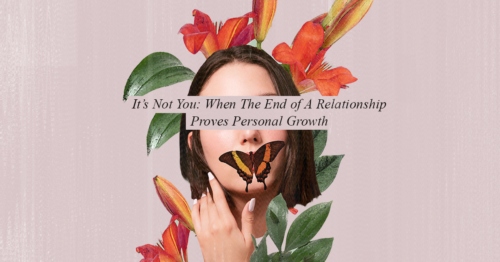Let’s talk about grooming habits and the importance of your hair (and more) down there
For decades, advice columns and internet forums have been plagued with queries, pleas and a general disdain over bad breath, body odor and disheveled hair. Considering today’s newfound obsessions with x-step skincare routines, multipurpose hygiene products and post-COVID paranoia, good hygiene and grooming habits should be second nature.
Yet, an inconsistent shower schedule, a growing pile of laundry, and a desperate need for a new deodorant stick seem to permeate modern relationships. So, what’s the deal? We asked a few people about their experiences with personal hygiene and its impact on their past relationships.
RELATED: How’s the Hair Down There? A Look Into Pinoy Down-There Grooming Habits
Is bad hygiene the new pandemic?
Despite the recent global hygiene overhaul resulting from COVID-19, now-lax restrictions have catapulted many into previous habits and a collective regression. Since reintegrating socially, 27-year-old marketer Jormund has had his unfortunately fair share of less-than-desirable hygiene problems with partners. “There was an attempt to go down on someone during a one-night stand that went terribly awry because of…matter, still dangling around their lower end. It's not a memory I like having,” he recounts.
By comparison (and “matter” aside), 44-year-old consulting editor Dante considers himself lucky to have never experienced hygiene-related mishaps, perhaps partly thanks to nipping it in the bud as early as possible. He shares, “Hygiene is a common topic with partners, so we get to address any possible concerns before they become problems.” Clearly, there are no unwanted bits for Dante.
Still, passing off bad hygiene habits as a form of laziness can’t always be the case. In many instances, poor hygiene can be a sign of disease—mental or otherwise.
Personal hygiene—not just a personal issue
According to medical author Melissa Conrad Stoppler, MD, poor hygiene is often intrinsically linked to mental health issues like severe depression and psychotic disorders. As such, you may want to consider whether your partner is going through a troubling time before assuming their lack of teeth brushing and hair combing results from being, well, inherently gross.
Dante has assumptions regarding the reasons behind poor hygiene—which could be more than physical. “The way we look after ourselves reflects how we look at ourselves. That's as straightforward to notice as it is difficult to unpack because there [is] any number of complex reasons behind [how] we manage (or don't manage) our well-being,” he says. “[We must make] the effort to understand what drives our hygiene habits and those of our partners [to] better support one another.”
When asked Jormund why he believed someone would neglect their personal hygiene, he answers, “Giving up on life can lead to dips in hygiene (I've been there). Ignorance is another possibility—some people just might not have learned better or [been] aware of how their scents come across to other people. The worst of it is willful uncaring, though. Like, step into any Neutral Grounds in the Philippines, and yikes.”
Comparably, personal hygiene issues could also potentially stem from physical disabilities or inadequate social support. While a much-neglected toothbrush or downstairs hair trim isn’t your responsibility, speaking up may, to an extent, fall on your shoulders.
Bringing up bad personal hygiene
Sure, we never want to hurt our partner’s feelings or make them feel embarrassed—but is it worth terrible breath and a hit to your sex life? Relationship counselor Kurt Smith states, “[Bad hygiene] can become a source of regular conflict…The way we take care of our hygiene is also a way we show respect and love toward our partners. When you look at it this way, then it is a topic that should be discussed because it’s a relationship issue, not solely a personal one.”
But the Poor Hygiene Discussion is far from an easy one. So, how do you begin to breach the topic? Jormund believes the discussion can be simple, saying, “I think I'd just make sure to open with ‘Hey, I care about you and never want these talks to bring you down.’”
While Dante doesn’t immediately consider bad hygiene a dealbreaker, he believes that “it would definitely be a frequent point of discussion. Hygiene is about proper self-care, and it's important to recognize [its value].” But Jormund isn’t as forgiving. He explains, “Yes [it could be a dealbreaker]. 50% because grown adults should know how to keep themselves clean and presentable, and 50% because hygiene is a show of interest and care in others' experiences of you (mindfulness, consideration).”
The bottom line
While conversations regarding hygiene—or a lack thereof—are undeniably awkward and uncomfortable, addressing the topic makes for a healthy and communicative relationship. So long as you’re coming from a place of curiosity instead of judgment, strong relationships should withstand the brunt of honest feedback.
If you’ve been on the receiving end of hygiene-related feedback, know that change doesn’t have to be time-consuming or expensive. A few tweaks to your routine, reminders to yourself and support from your partner are often all it takes to maintain a clean, healthy and balanced relationship (with showers, hair-brushing and other grooming habits involved).
Words Zoë Isabela Alcazaren
Art Macky Arquilla


















